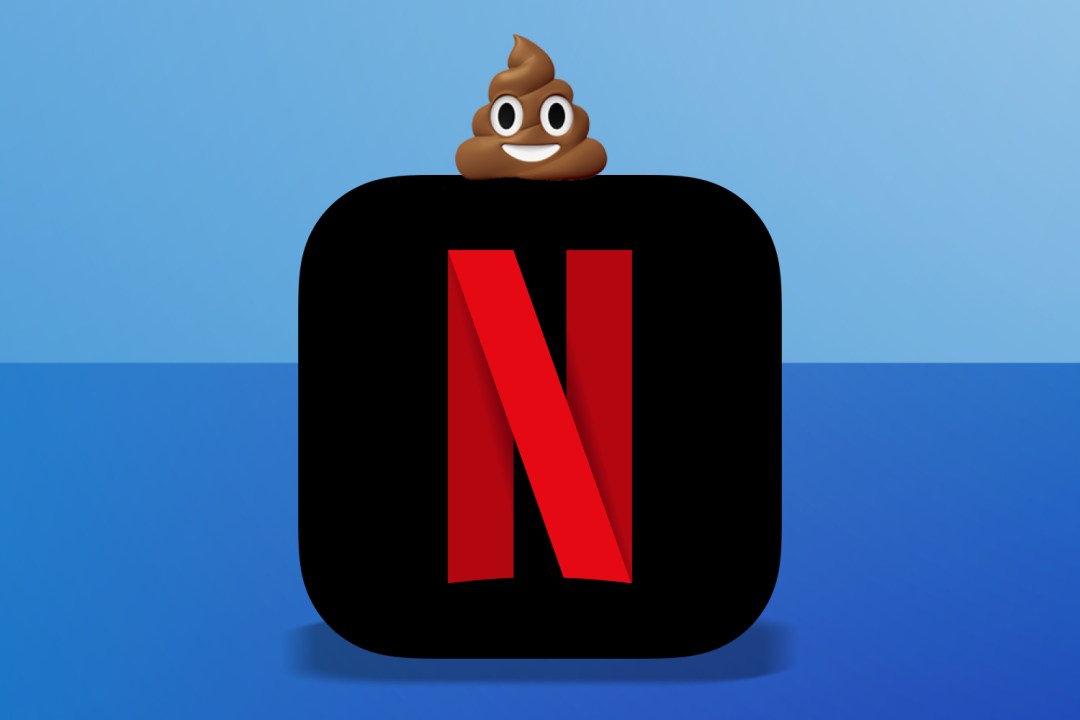Why Netflix loves adverts more than it loves you
The Netflix Basic plan is going away, because money. And also because money. But Netflix reckons this gives you more value. (It gives Netflix more money.)

As if we didn’t already feel like streaming companies were squeezing us for every penny, Netflix announced it will soon can its Basic plan. Well, I say announced. It was revealed in a shareholder letter. But then if you want to know what a company thinks of you, avoid marketing fluff and take notice of what it tells rich people keen to get richer.
The wording Netflix uses is pleasant. It says it’s “looking to retire” the Basic plan, as if it’ll soon dodder off and have a relaxing time playing golf or spend far more hours than strictly necessary gardening. But it means retire in the sense an assassin retires a target. Dispassionately. Precisely. Permanently.
But what did the poor Basic plan ever do to Netflix? It stopped making Netflix enough money, that’s what. Or, more accurately, it acted as a blocker for Netflix making more money, because families like mine clung on to the Basic plan even when new sign-ups were banned. It was the Good Enough plan. The Only The Nine-Year-Old Is Watching But It Keeps Her Happy plan.
It all ads up
That ‘retire’ thing is not a one-off. The entire letter is couched in affable language, as if Netflix is trying to convince itself it’s the good guy and that every user-hostile profit-oriented change is what the public really needs.
“As we invest in and improve Netflix, we’ll occasionally ask our members to pay a little extra to reflect those improvements,” it says. ”Which in turn helps drive the positive flywheel of additional investment to further improve and grow our service,” it continues, making you want to slap whoever approved the line “drive the positive flywheel”.
There are lines about connecting with fans and innovating, even though innovation boils down to welding mobile games and WWE events to the service. It talks of much-requested features, by which it means Extra Member, which monetised password sharing. And there’s a lot of excitement about ads, which can be summed up thusly: “Ads. We love ads. Imagine swimming in a pool of money, filled by turning on a tap that says ‘ads’. We’re not sure if everyone likes ads, but we sure do. Have we mentioned how much we like ads?”
Change of plan
So what options do you have on abruptly finding Basic plan’s head on your pillow? I headed to the Netflix website, and it suggested I upgrade to the most expensive plan, Premium. Subtle. At £17.99 per month (it’s $22.99 in the US), that’s more than double what I’m paying (£7.99) for the 720p/single stream Basic. But it provides 4K, spatial audio, and four simultaneous streams. So everyone in our family could watch something different, with one even watching two screens at once. How useful.
There are cheaper options: Standard (£10.99; 1080p; two devices) or Standard with adverts (£4.99). On paper, those are better value than Basic. But we never need multiple streams. So while Netflix might say it “provide[s] a range of prices and plans to meet a wide range of needs”, that range is shrinking. And I’m feeling pressured into paying for a plan that claims to offer more value but where that value is purely theoretical.
According to Netflix, everything it does “starts with the consumer”. But it ends with engagement, revenue and profit. Here, that means you’ll pay more for new content types you never asked for, previously free features that have now been monetised, and the ‘privilege’ of avoiding ads on a platform that never used to have any.



